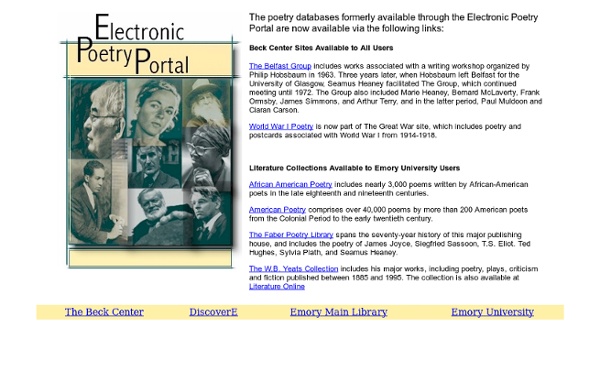



Great Books Index - List of Titles An Index to Online Great Books in English Translation To obtain an index of an author's works, including any known online editions of each work, and online articles about that author, select the author's name. To obtain an index of online editions of a particular work, select the name of that work. Then you will be able to scroll up and down to see other works by that author and articles about the author. Authors are listed here in order of their birthdates (insofar as known). To obtain an alphabetical listing of authors, go to the Author Index . The Bible -- Homer -- Aeschylus -- Sophocles -- Euripides -- Herodotus -- Thucydides -- Hippocrates -- Aristophanes -- Plato -- Aristotle -- Euclid -- Archimedes -- Apollonius -- Lucretius -- Virgil -- Tacitus -- Epictetus -- Nicomachus -- Plutarch -- Ptolemy -- Marcus Aurelius -- Galen -- Plotinus -- St Augustine -- The Quran -- St Thomas Aquinas -- Dante -- Chaucer -- Erasmus -- Machiavelli -- Copernicus -- Rabelais -- John Calvin -- Montaigne -- William Gilbert -- Cervantes -- F.
COMPLETE COLLECTION OF POEMS BY RUDYARD KIPLING Kipling gained renown throughout the world as a poet and storyteller. He was also known as a leading supporter of the British Empire. As apparent from his stories and poems, Kipling interested himself in the romance and adventure which he found in Great Britain's colonial expansion. Kipling was born on Dec.30, 1865, in Bombay, where his father directed an art school. He learned Hindi from his nurse, and he also learned stories of jungle animals. In 1889, Kipling return to England. Kipling composed many of his poems while living for several years in the United States in the mid-1890s. In 1896, Kipling returned to England from the United States. In 1900, Kipling went to South Africa to report the Boer War for an English newspaper. Before World War I, Kipling became active in politics. he widely lectured and wrote for the British cause both before and during the war.
LibriVox A Temporary Madness - June 14, 2011 A Temporary MadnessD.J. and Dylan on Father's Day. David John Thomas liked to drink alone. Author Paul Ferris illustrated the point in his biography Dylan Thomas with a portrait of David John alone in a corner table at his local Welsh pub, the Bush. As a boy, D.J. was a promising student. From childhood, Dylan Thomas accepted the poet’s life as his fate and set out to prove that his father’s rage, along with his love of language, would live on. Though it is a poem about anger, “Do not go gentle into that good night" is not an angry poem despite its iconic line: “Rage, rage against the dying of the light.” It was in rage that Dylan and D.J. could lose themselves. But rage is also a temporary madness. Son and father were linked as much by the fantasy of the poet’s life as by poetry itself. Dylan never showed his poem to the wasting D.J.
Literature Project - Free eBooks Online Function Keys - www.compukiss.com One of the biggest differences between a typewriter keyboard and the computer keyboard is the row of keys at the top of the keyboard that are labeled F1 through F12. Commonly referred to as Function Keys, these keys were frequently used in the good old days of DOS programs. In today’s Windows world of computers, you can probably use your computer without ever using one of these keys. Yet, these function keys provide some interesting shortcuts for common computer functions that can be useful tools in everyday computing. The function keys are frequently used in combination with other keys such as the CTRL key, the ALT key, and the Shift key. Here is a brief rundown of the function key and what they can do for you. F1As a throwback to DOS days, you will find that the F1 key will often bring up a help menu. F2You can use the F2 key to rename an item when working in Windows. F3When you are working in Windows, the F3 key will open the Find Files window. F5The F5 key is the refresh key.
Edgar Allan Poe, short stories, tales, and poems Dossier Journal: Read » Poetry-Fiction-Theory-Critique Down at Portland’s Central Precinct, down three floors, three cops sit slack-jawed staring at the biggest flat screen TV I have ever seen. A deep TV narrator voice says, “Lil’ Rick’s crippin’ had gone too far. The balancing act was torture.” It’s 10 til four, and the cops lounge around a long table, the kind we use at work for important meetings. I’m here for a ride-along with Officer Chad Stensgaard — a cop who spent a day in court last month after parking in a no-parking zone to eat dinner and watch the Blazers game. “It just went downtown for a few years,” Chad says, handing over a bullet-proof vest. I put on the vest. Chad is young, studly with a spikey handsome-man haircut. It’s 5:30, a Thursday night in the middle of June. “The commander thought I could use some good publicity,” Chad tells me. I’m not sure what to say back to him, so I don’t say anything. Chad pulls up next to a No Trespassing sign alongside a curb in front of the restaurant. She says her name is Angela.